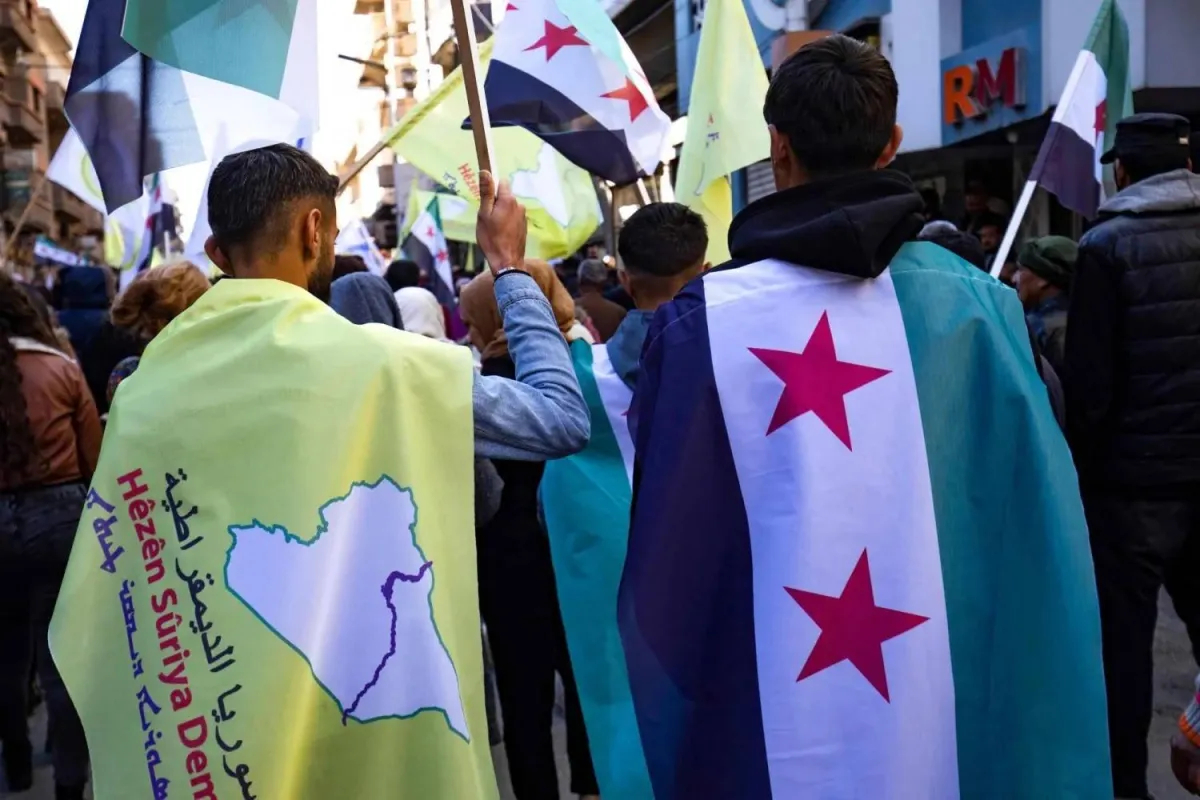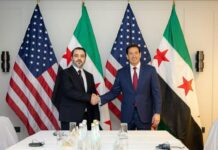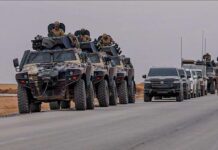
The new Syrian administration, led by President Ahmad al-Sharaa, has intensified efforts to reintegrate the northeast of the country into the national government, engaging in negotiations with the Syrian Democratic Forces (SDF) and the Kurdish National Council (KNC) to establish long-term stability. Amid ongoing discussions with Kurdish factions and regional actors, Damascus is seeking a diplomatic resolution to the longstanding governance and security issues in the region.
Kurdish National Council Signals Openness to Negotiations
The Kurdish National Council (KNC), a key political bloc representing Syrian Kurds, recently congratulated al-Sharaa on his inauguration, emphasizing the need for inclusive governance, a new constitution, and the protection of Kurdish rights. The KNC’s statement, issued yesterday, Feb. 4, highlighted its commitment to ending Syria’s political fragmentation and securing a peaceful future for all citizens.
The council stressed the importance of drafting a constitution that guarantees equal rights and freedoms while ensuring the safe return of refugees and displaced persons. In its statement, the KNC called for an approach based on “dialogue, openness, and rejection of violence” to overcome Syria’s challenges and create a system of equal citizenship under the rule of law.
The KNC’s endorsement of dialogue with Damascus marks a shift in Kurdish political strategy, particularly as it prepares to engage in direct talks with the Syrian government alongside other Kurdish parties, including the Democratic Union Party (PYD), which has historically been at odds with the council.
Kurdish Political Talks with Damascus Gain Momentum
A significant breakthrough occurred last week when SDF Commander Mazloum Abdi and the KNC agreed to form a joint Kurdish delegation to negotiate with Damascus. The discussions, facilitated by the US and French foreign ministries, signal growing international support for a peaceful resolution to the “Kurdish question” in Syria.
A source familiar with the negotiations told Istanbul-based Syria TV that the upcoming meetings aim to “establish a unified Kurdish political position and advance talks with the Syrian administration.” The talks, which resumed after a four-year hiatus, are expected to address Kurdish autonomy, security arrangements, and the withdrawal of foreign PKK-linked elements from Syria.
The negotiations have also been influenced by regional diplomacy. Iraqi Kurdish leader Masoud Barzani has played a key role in mediating between the KNC and the SDF, with Turkish coordination. Barzani’s efforts focus on persuading the SDF to align with Damascus while reducing the influence of the PKK, a group designated as a terrorist organization by the US, EU, and Turkey.
SDF’s Shifting Position
The Syrian administration’s approach to the SDF has evolved in recent months. While maintaining that the region must return to central government control, Damascus has engaged in a mix of military pressure and political outreach. Syrian Defense Minister Murhaf Abu Qasra recently underscored the administration’s commitment to peaceful reintegration, telling the New Arab, “The region will be liberated, inshallah. But the population must be patient. Resolving this issue peacefully is better.”
However, the minister also suggested that military force could be used, if necessary, particularly in light of the SDF’s control over Arab-majority regions. The presence of thousands of ISIS detainees in SDF-run prisons further complicates the situation, with Damascus pushing for their transfer under Syrian jurisdiction.
As pressure mounts, the SDF has softened its demands, moving away from calls for full self-administration and instead advocating for pluralism, decentralized governance, and constitutional recognition of Kurdish rights—positions that align more closely with the KNC’s stance.
Turkish-Syrian Coordination
Recent diplomatic exchanges between Damascus and Ankara have reinforced the Syrian government’s position in the northeast. During his visit to Turkey in January, Syrian Foreign Minister Asaad al-Shaibani stressed that the SDF’s current structure was unsustainable and that displaced Arab tribes must be allowed to return to their regions.
Turkish officials have echoed these sentiments, linking any potential withdrawal from Syrian territory to the elimination of PKK influence in the region. With Turkish-backed Syrian factions joining the Syrian Defense Ministry, military operations against PKK-aligned forces remain a possibility if negotiations fail.
The situation may also be influenced by an anticipated speech from PKK founder Abdullah Ocalan, expected later this month. Turkish analysts speculate that Ocalan could call for disarmament and political engagement, which could significantly impact the SDF’s decision-making. Damascus is expected to hold off on any major military action until the implications of Ocalan’s statement become clear.
An Air of Uncertainty
Despite the ongoing negotiations, President al-Sharaa has expressed skepticism about reaching a final settlement with the SDF. In an interview with The Economist, he acknowledged that while discussions continue, the broader Syrian public remains opposed to federalism.
His administration has made clear that any resolution must ensure Syria’s territorial unity, reintegrate SDF-controlled areas into the national framework, and remove non-Syrian PKK fighters from the country. Whether the SDF leadership will ultimately agree to these terms remains uncertain.








